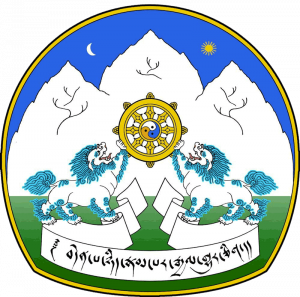Successive Kalöns (Ministers) of the Department of Education
1. Kundeling Woeser Gyaltsen (Tenure: 4/10/1960-9/1964)
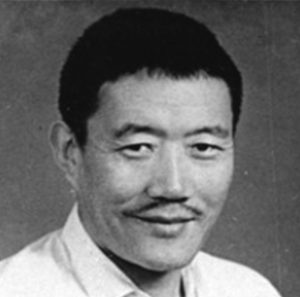 Mr. Kundeling Woeser Gyaltsen was born on 15th April 1915. He obtained his basic education for six years from Kyirey School in Lhasa, Tibet. He got ordained as a monk at the age of 13 in Drepung Monastery. He later served as a government official in Kundeling Ladrang at the age of 17 for two years. In 1938, he was appointed as a staff of Tsedrung office. He also served as a Deputy Protocol officer to Gyaltsap Rateng Rinpoche, Comptroller of Tsechokling Monastery, Shoedron and Tsedron. He played a key role in the flight of His Holiness the great 14th Dalai Lama from Tibet in March 1959.
Mr. Kundeling Woeser Gyaltsen was born on 15th April 1915. He obtained his basic education for six years from Kyirey School in Lhasa, Tibet. He got ordained as a monk at the age of 13 in Drepung Monastery. He later served as a government official in Kundeling Ladrang at the age of 17 for two years. In 1938, he was appointed as a staff of Tsedrung office. He also served as a Deputy Protocol officer to Gyaltsap Rateng Rinpoche, Comptroller of Tsechokling Monastery, Shoedron and Tsedron. He played a key role in the flight of His Holiness the great 14th Dalai Lama from Tibet in March 1959.
The first Tibetan School opened in Mussoorie with fifty students was inaugurated by His Holiness the Dalai Lama on 3rd March 1960. He served as the principal of the School.
Soon the Department of Education was established in Dharamshala where he served as the first Education Minister from 4th October to September 1964. Later he served as the Minister of Religion and culture of the 3rd Cabinet from 1970 to 1975 before becoming Prime Minister of the 4th Cabinet from 1975 to 1980.
2. Jangtsachozed Tsering Gonpo (Tenure: 9/1964-10/7/1966)
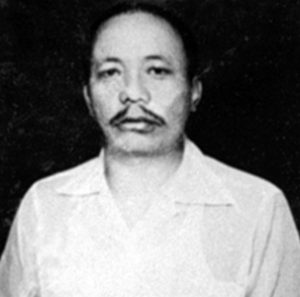 Mr. Tsering Gonpo was born in Kham Lithang, Tibet. In 1958, he was one of the main leaders of the Tibetan Tensung volunteers established by Adruk Gonpo Tashi. He was one of the deputies of the first commission of Tibetan People’s Deputies, currently known as TPiE. In September 1964, he was appointed as the the Kalön (Minister) of Department of Education and served till 10th July 1966. He passed away on the above date due to health complications.
Mr. Tsering Gonpo was born in Kham Lithang, Tibet. In 1958, he was one of the main leaders of the Tibetan Tensung volunteers established by Adruk Gonpo Tashi. He was one of the deputies of the first commission of Tibetan People’s Deputies, currently known as TPiE. In September 1964, he was appointed as the the Kalön (Minister) of Department of Education and served till 10th July 1966. He passed away on the above date due to health complications.
3. Taring Jigmé Sumtsen Wangpo (Tenure: 1/1968-5/1973)
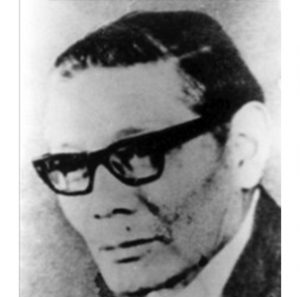 Mr. Taring Jigmé was a Tibetan prince, politician and soldier born in 1908 in Sikkim. He was the son of Sikkim prince Tsodak Namgyal. He joined the regiment composed by Thubten Kunphel and was sent to the unit in Gyantse. In 1932 he along with Yuthok were appointed as commanders in the newly established Tibetan dongdak army (Dzasak).
Mr. Taring Jigmé was a Tibetan prince, politician and soldier born in 1908 in Sikkim. He was the son of Sikkim prince Tsodak Namgyal. He joined the regiment composed by Thubten Kunphel and was sent to the unit in Gyantse. In 1932 he along with Yuthok were appointed as commanders in the newly established Tibetan dongdak army (Dzasak).
Taring was a senior official in the Ladrang for 18 years. Taring was an English teacher for the young His Holiness the 14th Dalai Lama. Considered the last architect of Lhasa, he designed the summer residence of His Holiness the Dalai Lama, when it was extended in 1953.
Taring was also an enthusiastic and knowledgeable cinematographer. He filmed festival and street scenes in Lhasa. His best-known work concerns a documentary film on the official visit of His Holiness the Dalai Lama to the monasteries of Sera, Drepung and Ganden.
He was appointed interpreter of the mission which was to go to Beijing in February 1950 for negotiations with the People’s Republic of China, which announced that it wanted to “liberate” Tibet. Fluent in Hindi and English, he was the interpreter of the Dalai Lama during his travels in India in the 1950s. He left Tibet during the Tibetan exodus of 1959. Taring was one of the Principal of the Central School for Tibetans in Mussoorie and was the 3rd Minister of the Education Department in the Tibetan government in exile from 1968 to 1973. With Ngawang Thondup Narkyid, he translated the Universal Declaration of Human Rights into Tibetan. Taring devoted his life welcoming Tibetans fleeing from Tibet. He participated in the searching sponsorships for the elderly Tibetans. He established the Tibetan Homes Foundation for Tibetan refugees’ children. Taring passed away in 1991 in Rajpur, Dehradun, India.
4. Thupten Nyinjey (Tenure: 6/2/1974-2/2/1980)
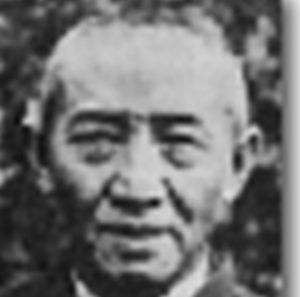 Ven. Thupten Nyinjey was born on 5th May 1922 in a small peasant family in Yakde Derab, Tibet. Joined the Sera-Jey Monastery at the age of 5-6 years and took his monkhood ordination from His Holiness the 13th Dalai Lama. Did early schooling at Tsenyer School located near Potala. He was selected in place of a terminated student of Tse-school and did his studies for 9 years till 1941. Appointed as a government official in 1941 and served in various capacities. He escaped from Tibet in 1959 and engaged in the welfare service for the Tibetan refugee camp at Buxa and later became its head. In September of that year he shifted to Mussoorie and served for the establishment of Home Department. In 1960, he shifted to Dharamshala, Himachal Pradesh and served as the head of newly established Montessori for the Children of Tibetan refugees and helped in the admission of Tibetan Children in schools from Missamari and Buxa. In 1961 appointed as the Kalön assistant for the Department of Education at Delhi. In 1965, he was appointed as the assistant to the Representative of Delhi, Shakappa Wangchuk Deden. Served as the officiating Representative in Delhi from 1966 to 1972. Further served as assistant of the Representative of Delhi from 1972 to 1973. He was appointed as the Kalön of the Department of Education on 6th February 1974. He was also given additional charge of Kalön of Religion and Culture Department from 1975 to 1980. Due to his health complication he retired from the post on 20th September 1980 and did his outstanding service in different responsibilities till his last breath.
Ven. Thupten Nyinjey was born on 5th May 1922 in a small peasant family in Yakde Derab, Tibet. Joined the Sera-Jey Monastery at the age of 5-6 years and took his monkhood ordination from His Holiness the 13th Dalai Lama. Did early schooling at Tsenyer School located near Potala. He was selected in place of a terminated student of Tse-school and did his studies for 9 years till 1941. Appointed as a government official in 1941 and served in various capacities. He escaped from Tibet in 1959 and engaged in the welfare service for the Tibetan refugee camp at Buxa and later became its head. In September of that year he shifted to Mussoorie and served for the establishment of Home Department. In 1960, he shifted to Dharamshala, Himachal Pradesh and served as the head of newly established Montessori for the Children of Tibetan refugees and helped in the admission of Tibetan Children in schools from Missamari and Buxa. In 1961 appointed as the Kalön assistant for the Department of Education at Delhi. In 1965, he was appointed as the assistant to the Representative of Delhi, Shakappa Wangchuk Deden. Served as the officiating Representative in Delhi from 1966 to 1972. Further served as assistant of the Representative of Delhi from 1972 to 1973. He was appointed as the Kalön of the Department of Education on 6th February 1974. He was also given additional charge of Kalön of Religion and Culture Department from 1975 to 1980. Due to his health complication he retired from the post on 20th September 1980 and did his outstanding service in different responsibilities till his last breath.
5. Juchen Thupten Namgyal (Tenure: 24/8/1980-1/1985 also 9/1987-11/1988)
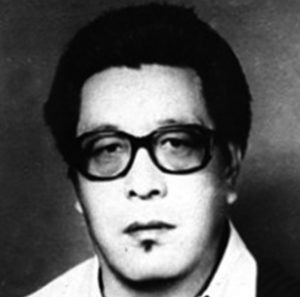 Mr. Juchen Thupten Namgyal was born in Dege district of Kham province in the year 1929. From an early age, he took keen interest in the studies of Tibetan language and Tibetan Buddhism. At the age of 17, he went to Lhasa and Sakya for pilgrimage as well as to study Buddhism. He returned to Dege at the age of 19. In 1955, when the Chinese forces first started using military force in the name of liberation in Kham areas, he realized the evil intentions of the Chinese communist regime. The people of Kham, at that time, were getting ready for a revolution against the Chinese communist forces. He joined the resistant fighters and went twice to Lhasa as representative of the “Chu Shi Gang Druk” to inform the Tibetan authorities about the Chinese brutalities in Kham and to ask for military help.
Mr. Juchen Thupten Namgyal was born in Dege district of Kham province in the year 1929. From an early age, he took keen interest in the studies of Tibetan language and Tibetan Buddhism. At the age of 17, he went to Lhasa and Sakya for pilgrimage as well as to study Buddhism. He returned to Dege at the age of 19. In 1955, when the Chinese forces first started using military force in the name of liberation in Kham areas, he realized the evil intentions of the Chinese communist regime. The people of Kham, at that time, were getting ready for a revolution against the Chinese communist forces. He joined the resistant fighters and went twice to Lhasa as representative of the “Chu Shi Gang Druk” to inform the Tibetan authorities about the Chinese brutalities in Kham and to ask for military help.
His second trip to Lhasa in the year 1956 coincided with first conference of the Preparatory Committee of the Tibet Autonomous Region. Int the conference, he accused the Chinese about inhumane brutalities in Kham and asked them to stop the military aggression.
When he reached Chamdo on his way back from Lhasa, the Tibetan revolution has gained much momentum and there were protests everywhere. Seeing it was highly risky to move forward to Kham, he returned back to Lhasa. In 1959, during the Tibetan people’s uprising, he led a 200-strong volunteers from Dege area to guard the Norbulingka Palace of His Holiness the Dalai Lama.
After coming into exile, he settled in Missamari and Kalimpong. From 1965 he settled in the first Tibetan settlement in Mysore State where he served as group leader, member of assembly and member of Co-operative Society for nine years. From 25 December 1972 to 4th May 1976, he was elected as a member of the 5th Commission of Tibetan People’s Deputies (CTPD). He was the Speaker of the Parliament from 8th August 1974 to 4th May 1976. On 11th May 1976 at the age of 47, he was appointed as the Kalön of Information and International Relations Department of the Central Tibetan Administration. He served twice as the Kalön of Education Department from 24th August 1980 to January 1985 and September 1987 to November 1988. He served as the Kalön Tripa in the 6th and 7th Kashag and Kalön for 15 years.
He was in the first fact-finding delegation which visited Tibet in 1979. In 1982 and 1984, he led the three-member exploratory mission sent by His Holiness the Dalai Lama to Beijing to kick-start discussion on key issues in Tibet. The other members of the delegation included Kalön Phuntsok Tashi Takla and Lodi Gyaltsen Gyari. He breathed his last at the age of 82 due to illness at a hospital in Delhi on 31 August 2011.
6. Tethong Tenzin Geyche (Tenure: 11/1985-8/1987)
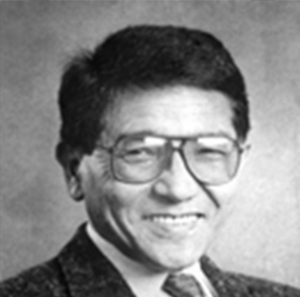 Mr. Tethong Tenzin Geyche has been a trusted companion and aide to His Holiness, the 14th Dalai Lama, for over four decades. He shares a close relationship with His Holiness’ family, including his beloved late mother and youngest brother, Ngari Rinpoche.
He was born on 22nd May 1943 in Lhasa, Tibet. In 1950 he went to India and acquired his school education from English medium Schools in Kalimpong and Darjeeling. Following the escape of His Holiness the Dalai Lama with his entourage to India in 1959, he discontinued his education and joined Tibetan Schools at Mussoorie and Shimla as an English Teacher. He later completed his education from one of the former school in 1963. Tethong first joined the Tibetan administrative service in 1961 before being deputed to the Private Office of His Holiness the Dalai Lama three years later. In those early years of the Tibetan government in exile, he was one of the only three staffs of the Private Office of His Holiness—each of these young men worked furiously to establish efficient systems, write letters to world leaders to tell them of the Tibetan plight, as well as cater to the needs of the enormous influx of Tibetans escaping to India, Nepal and Bhutan. He served in the Private Office until retiring in 2008 as Secretary (English Section). As part of his role, Tethong worked as the Dalai Lama’s personal assistant and press liaison, accompanying him on several official international visits, including his meeting with Pope John Paul VI at Vatican in 1973, his historic first trip to America in 1979, and the Nobel Prize ceremony in Oslo in 1989. In addition, Tethong served as Tibet’s foreign minister and the minister of its Department of Information and International Relations, and also established first Department of Health in the 1980s. He was appointed as Kalön of Information Department on 2nd January 1978. Meanwhile he was promoted as additional secretary at the Private Office of His Holiness the Dalai Lama on 1st November, the same year. He was then appointed as an assistant of Kalön of the Kashag on 14th January 1980. Then appointed as head of Health Department. In November 1985, he was then appointed as Kalön of Department of Education and held the post till August 1987. After that he was appointed as the Secretary of Private office of His Holiness the Dalai Lama. On 23rd May 2005, he retired from his post.
Mr. Tethong Tenzin Geyche has been a trusted companion and aide to His Holiness, the 14th Dalai Lama, for over four decades. He shares a close relationship with His Holiness’ family, including his beloved late mother and youngest brother, Ngari Rinpoche.
He was born on 22nd May 1943 in Lhasa, Tibet. In 1950 he went to India and acquired his school education from English medium Schools in Kalimpong and Darjeeling. Following the escape of His Holiness the Dalai Lama with his entourage to India in 1959, he discontinued his education and joined Tibetan Schools at Mussoorie and Shimla as an English Teacher. He later completed his education from one of the former school in 1963. Tethong first joined the Tibetan administrative service in 1961 before being deputed to the Private Office of His Holiness the Dalai Lama three years later. In those early years of the Tibetan government in exile, he was one of the only three staffs of the Private Office of His Holiness—each of these young men worked furiously to establish efficient systems, write letters to world leaders to tell them of the Tibetan plight, as well as cater to the needs of the enormous influx of Tibetans escaping to India, Nepal and Bhutan. He served in the Private Office until retiring in 2008 as Secretary (English Section). As part of his role, Tethong worked as the Dalai Lama’s personal assistant and press liaison, accompanying him on several official international visits, including his meeting with Pope John Paul VI at Vatican in 1973, his historic first trip to America in 1979, and the Nobel Prize ceremony in Oslo in 1989. In addition, Tethong served as Tibet’s foreign minister and the minister of its Department of Information and International Relations, and also established first Department of Health in the 1980s. He was appointed as Kalön of Information Department on 2nd January 1978. Meanwhile he was promoted as additional secretary at the Private Office of His Holiness the Dalai Lama on 1st November, the same year. He was then appointed as an assistant of Kalön of the Kashag on 14th January 1980. Then appointed as head of Health Department. In November 1985, he was then appointed as Kalön of Department of Education and held the post till August 1987. After that he was appointed as the Secretary of Private office of His Holiness the Dalai Lama. On 23rd May 2005, he retired from his post.
Tethong was also the first president of the Tibetan Youth Congress (TYC), being the co-founder of it alongside with his brother and colleagues in 1970. TYC remains the largest non-governmental organization for the Tibetan diaspora community, with tens of thousands of members currently registered.
Under the guidance of His Holiness, Tenzin Geyche Tethong has played a key role in establishing a community in exile and has dedicated his life for the preservation of Tibetan culture.
7. Tashi Wangdi (Tenure: 11/1988-5/1990)
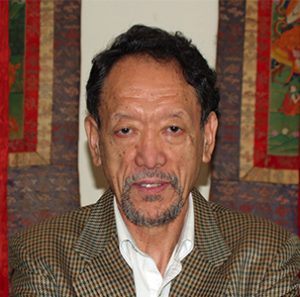 Mr. Tashi Wangdi was born on 15th April 1947 in Sangngag Choeling, Tibet, was one of the first batch of 50 students of CST, Mussoorie, and did his studies in Tibetan language. In 1959, after escaping from Tibet with his parents, he did his early schooling. In 1961, he was sent to Weinberg Allen School, Mussoorie and studied for four years. In 1966, he served in both the Departments of Home and education on works related to English language. He obtained scholarship at the Durham University and did his graduation in Political and Social Sciences from 1968 to 73. After returning to India in 1974, he served as Senior Clerk in the Department of Home, meanwhile he was elected as the central executive member of Tibetan Youth Congress during its 2nd General meeting. In 1974 to 75, he was appointed as Deputy Secretary to Department of Home and further Assistant Secretary to the Representative of His Holiness the Dalai Lama, Delhi from 1976 to 77. He became the Secretary from 1977 to 78. He was appointed as the Assistant Representative of His Holiness the Dalai Lama, Delhi from 1979 to 81 and further promoted to the post of Representative of Delhi in 1981. Beside his responsibility as Representative of Delhi, he was appointed as the Kalön of the Department of Home, Security and DIIR. He was further appointed as the Kalön of the Department of Education and DIIR with the additional charge of Representative of Delhi from 1987 to 90. His Holiness the Dalai Lama appointed him as the Chairman of the Task force of Sino-Tibetan Dialogue in 1988. He was re-appointed as Kalön of the Department of Security and DIIR on 10th August 1992. In 1996, he was appointed as Kalön of the 11th Kashag and took the charge of Kalön of DIIR and then Kalön of Department of Religion and Culture. After completing his tenure he served as the Representative of Delhi in 2002. In 2005, he was appointed as Representative of His Holiness the Dalai Lama in Northern America and then Representative of Brussels, Europe in 2009.
Mr. Tashi Wangdi was born on 15th April 1947 in Sangngag Choeling, Tibet, was one of the first batch of 50 students of CST, Mussoorie, and did his studies in Tibetan language. In 1959, after escaping from Tibet with his parents, he did his early schooling. In 1961, he was sent to Weinberg Allen School, Mussoorie and studied for four years. In 1966, he served in both the Departments of Home and education on works related to English language. He obtained scholarship at the Durham University and did his graduation in Political and Social Sciences from 1968 to 73. After returning to India in 1974, he served as Senior Clerk in the Department of Home, meanwhile he was elected as the central executive member of Tibetan Youth Congress during its 2nd General meeting. In 1974 to 75, he was appointed as Deputy Secretary to Department of Home and further Assistant Secretary to the Representative of His Holiness the Dalai Lama, Delhi from 1976 to 77. He became the Secretary from 1977 to 78. He was appointed as the Assistant Representative of His Holiness the Dalai Lama, Delhi from 1979 to 81 and further promoted to the post of Representative of Delhi in 1981. Beside his responsibility as Representative of Delhi, he was appointed as the Kalön of the Department of Home, Security and DIIR. He was further appointed as the Kalön of the Department of Education and DIIR with the additional charge of Representative of Delhi from 1987 to 90. His Holiness the Dalai Lama appointed him as the Chairman of the Task force of Sino-Tibetan Dialogue in 1988. He was re-appointed as Kalön of the Department of Security and DIIR on 10th August 1992. In 1996, he was appointed as Kalön of the 11th Kashag and took the charge of Kalön of DIIR and then Kalön of Department of Religion and Culture. After completing his tenure he served as the Representative of Delhi in 2002. In 2005, he was appointed as Representative of His Holiness the Dalai Lama in Northern America and then Representative of Brussels, Europe in 2009.
8. Jetsun Pema (Tenure: 17/5/1990-7/1993)
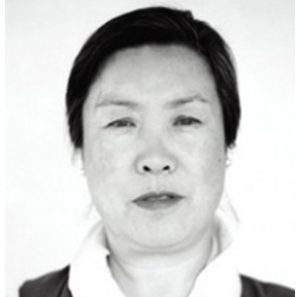 Mrs. Jetsun Pema was born in Lhasa, on 7 July 1940. She went to India in 1950 and studied first at St. Joseph’s Convent in Kalimpong and later at Loreto Convent in Darjeeling from where she completed her Senior Cambridge in 1960. In 1961, she went to Switzerland and then to England for further studies. She returned to India in April 1964.
Mrs. Jetsun Pema was born in Lhasa, on 7 July 1940. She went to India in 1950 and studied first at St. Joseph’s Convent in Kalimpong and later at Loreto Convent in Darjeeling from where she completed her Senior Cambridge in 1960. In 1961, she went to Switzerland and then to England for further studies. She returned to India in April 1964.
At the behest of her elder brother, His Holiness the 14th Dalai Lama, she became the President of the Tibetan Children’s Village (TCV), holding that position until her retirement in August 2006. She held this position for more than 42 years.
Because of her efforts, today TCV projects include five Children’s Villages with attached schools, seven Residential Schools, Seven Day Schools, ten Day Care Centers, four Vocational Training Centers, four Youth Hostels, and four Homes for the Elderly, and an outreach program for over 2,000 children in exile. All in all, the TCV overlooks for the well-being of more than 15,000 children and youths. In 1970, at the first General Body Meeting of the Tibetan Youth Congress, Jetsun Pema was elected its Vice President, and in 1984, in first General Body Meeting of the Tibetan Women’s Association, she was elected as Adviser. In 1980, she was sent by His Holiness the Dalai Lama to visit Tibet as the leader of the third Fact Finding Delegation and for three months traveled extensively all over the country. Jetsun Pema is also the Governing Body member of the Tibet House, New Delhi and the His Holiness the Dalai Lama Charitable Trust.
In May 1990, His Holiness the Dalai Lama convened a special Congress of the Tibetan People-In-Exile in Dharamshala to elect the Kalöns (Ministers) of the Central Tibetan Administration. Jetsun Pema was one of the three Ministers elected and became the first Tibetan Woman Minister. In 1991, she was again elected by the Assembly of Tibetan People’s Deputies (Tibetan Parliament) as one of the Ministers and was allocated the portfolio of Minister-In-Charge of the Department of Education. In July 1993, she resigned from the Kashag (Cabinet) and continued her service as the President of the Tibetan Children’s Villages till 2006. In 1995, the Assembly of Tibetan People’s Deputies awarded her the title, “Mother of Tibet,” in recognition of her dedication and service for Tibetan children. Jetsun Pema has traveled widely to speak about Tibetans in general and her work at the Tibetan Children’s Villages.
9. Rinchen Khando (Tenure: 8/1993-5/9/2001)
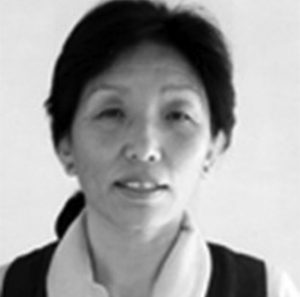 Mrs. Rinchen Khando was born in Kardze, in eastern Tibet on 22nd March 1946. She came to Lhasa at the age of 7 and learnt Tibetan writing. In 1958, she went to India and learnt English for one year. In 1959, she along with her family shifted to Mussoorie, where she graduated from Weinberg-Allan school in 1968. She received her B.A. degree at Loreto College in Darjeeling, India. In 1970, she took the responsibility of Secretary of the RTYC, Darjeeling. She is married to Tenzin Choegyal, younger brother of His Holiness the Dalai Lama and is the mother of two children. Mrs. Choegyal currently resides in Dharamsala, India. One of the most articulate spokespersons for the Tibetan cause, she travels extensively educating the international community on the plight of Tibetan refugees and the importance of preserving the Tibetan culture through education. Her tireless service to the community was recognized in 1997, with conferment of the “Women of Courage Award” from the Women’s Commission on Refugee Women and Children.
Mrs. Rinchen Khando was born in Kardze, in eastern Tibet on 22nd March 1946. She came to Lhasa at the age of 7 and learnt Tibetan writing. In 1958, she went to India and learnt English for one year. In 1959, she along with her family shifted to Mussoorie, where she graduated from Weinberg-Allan school in 1968. She received her B.A. degree at Loreto College in Darjeeling, India. In 1970, she took the responsibility of Secretary of the RTYC, Darjeeling. She is married to Tenzin Choegyal, younger brother of His Holiness the Dalai Lama and is the mother of two children. Mrs. Choegyal currently resides in Dharamsala, India. One of the most articulate spokespersons for the Tibetan cause, she travels extensively educating the international community on the plight of Tibetan refugees and the importance of preserving the Tibetan culture through education. Her tireless service to the community was recognized in 1997, with conferment of the “Women of Courage Award” from the Women’s Commission on Refugee Women and Children.
Director of the Tibetan Nuns Project, was a founding member of the Tibetan Women’s Association, under whose auspices the Tibetan Nuns Project was established, and served as its President from 1984 until her election to the Tibetan Cabinet in 1994. She also served as the Minister of Education in the Tibetan Government-In-Exile from July 1993 till September 2001, a post in which she was responsible for overseeing the education for all Tibetan children living in exile in India, Nepal and Bhutan.
10. Thupten Lungrik (Tenure: 5/9/2001-29/5/2011)
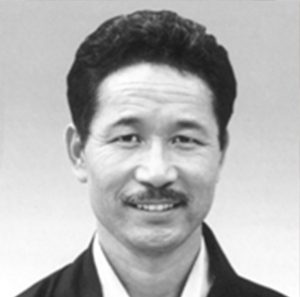 Mr. Thupten Lungrig, born on May 19, 1957 in Rebkong, Amdo, was a Tibetan government minister of education in exile. He received his academic training at the Central School for Tibetans, Dalhousie from 1963 to 72. He did his higher education in the Central Institute for Higher Tibetan Studies, Varanasi from 1972 to 1981. In 1981, he finished his studies and obtained the Acharya degree. Then, for about eleven years, he taught Tibetan language at the Tibetan Children’s Village of Dharamsala. Later, he became director of the Tibetan children’s village school, Suja. In 1996, he was elected Deputy Speaker (and later the Speaker) of the Tibetan Parliament in exile. He was elected deputy in 2001 and represents his native province, Amdo. From September 2006 to August 2011, he was the Minister of Education for the Tibetan government in exile (Central Tibetan Administration).
Mr. Thupten Lungrig, born on May 19, 1957 in Rebkong, Amdo, was a Tibetan government minister of education in exile. He received his academic training at the Central School for Tibetans, Dalhousie from 1963 to 72. He did his higher education in the Central Institute for Higher Tibetan Studies, Varanasi from 1972 to 1981. In 1981, he finished his studies and obtained the Acharya degree. Then, for about eleven years, he taught Tibetan language at the Tibetan Children’s Village of Dharamsala. Later, he became director of the Tibetan children’s village school, Suja. In 1996, he was elected Deputy Speaker (and later the Speaker) of the Tibetan Parliament in exile. He was elected deputy in 2001 and represents his native province, Amdo. From September 2006 to August 2011, he was the Minister of Education for the Tibetan government in exile (Central Tibetan Administration).
After His Holiness the Dalai Lama’s political retirement in March 2011, he was one of the 5 members of the Charter “Amendment Drafting Committee” along with Penpa Tsering, Dolma Gyari, Pema Jungney and Samdhong Rinpoche.
11. Samdhong Lobsang Tenzin (Tenure: 30/5/2011-7/8/2011)
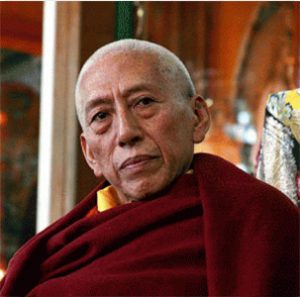 Ven. Samdhong Rinpoche was born in 1939 in Jol, in eastern Tibet. At the age of four, he was admitted in Yangchen Phuntsokling Monastery. At the age of five, he was recognised, according to Tibetan tradition, as the reincarnation of the 4th Samdhong Rinpoche and enthroned in Gaden Dechenling Monastery at Jol. Two years later he took vows as a monk, started his religious training at Drepung Monastery in Lhasa, at the age of 12 and studied upto Madhyamika class.
Ven. Samdhong Rinpoche was born in 1939 in Jol, in eastern Tibet. At the age of four, he was admitted in Yangchen Phuntsokling Monastery. At the age of five, he was recognised, according to Tibetan tradition, as the reincarnation of the 4th Samdhong Rinpoche and enthroned in Gaden Dechenling Monastery at Jol. Two years later he took vows as a monk, started his religious training at Drepung Monastery in Lhasa, at the age of 12 and studied upto Madhyamika class.
He fled to India in 1959, after the Tibet Rebellion, along with many Tibetans who followed His Holiness the 14th Dalai Lama, Tenzin Gyatso into exile. From October 1961, he served as the religious teacher of Tibetan School in Shimla and in 1963 served as the acting Principal. In 1964 he worked as religious teacher of Darjeeling Tibetan School and in 1965 at the age of 26, he was appointed as the Principal of Central School for Tibetans, Dalhousie and served there till 1970. He received his Lharampa degree in the year 1968 and Ngagrimpa degree in 1969.In 1971 he became Principal of Central Institute of Higher Tibetan Studies (CIHTS), Varanasi (Benares), and from 1988 to 2000 he was the Director.
From 1994 to 1995, he was awarded National Lectureship from Indian Council of Philosophical Research (ICPR), New Delhi. He assumed many important responsibilities including President of the Association of Indian Universities (AIU), a strong academic group of more than 250 Vice-Chancellors of Indian Universities, Chancellor of Sanchi University of Buddhist-Indic Studies and Chairman of various Trust and Foundations. He is regarded as one of the leading Tibetan scholars of Buddhism and is also an authority on the teachings of Mahatma Gandhi. He is fluent in Hindi and English, Tibetan being his mother tongue.
Rinpoche is one of the very few Buddhist scholars in the world with this depth, experience and clarity in Buddhist philosophy and he also spent many years exploring directly with J. Krishnamurti, who was one of the great educationists in India. Rinpoche has been an honored guest at many forums in India. He has spoken on challenges India faces today, and has stressed on inclusion of the poor masses for development of the country.
In 1991 Rinpoche was appointed by His Holiness the Dalai Lama as a member of the Assembly of Tibetan People’s Deputies, and later was unanimously elected as its Speaker. Rinpoche served twice as the Speaker of the Tibetan Parliament-in-Exile from 1991 to 2001. Rinpoche contributed to drafting the new constitution of the Tibetan Government in Exile, introduced economic and educational reforms, including the Basic Education Policy for Tibetans in Exile and ensured a policy of non-violence, transparency, environmentally sustainable, and organic farming.
In 2000 His Holiness the Dalai Lama decided that the Tibetan people in exile should elect their own Political Leader, and in July 2001, Rinpoche was elected as the first elected Kalön Tripa of the Central Tibetan Administration. Since 2001 he has travelled extensively to gain support for the cause of Tibet’s autonomy and raise awareness about His Holiness the Dalai Lama’s proposals for negotiating autonomy with the Chinese government.
During his Prime Ministership, Rinpoche negotiated many times with the Chinese officials to bring a suitable solution for Tibetan cause. However no meaningful development could be made in this direction. Following the resignation of the Education Minister Mr. Thupten Lungrik on 29th May 2011, Rinpoche undertook the additional responsibility of the Education Minister from 30th May to 7th August 2011.
12. Dr. Lobsang Sangay (Tenure: 8/8/2011-16/9/2014)
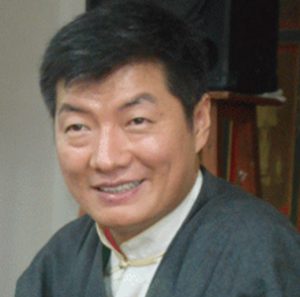 Dr. Lobsang Sangay was born in Darjeeling, India in 1968, with a typical Shichak (settlement) background amidst fields, cows and chickens, fetching wood from the forest and helping his parents’ small business, including selling sweaters. In 1995, he received a Fulbright Scholarship to study at Harvard Law School, where he subsequently received his LL.M. degree. Sangay spent 15 years at Harvard University, as a student and then as a senior fellow. He is the first Tibetan to become a Law Professor at Harvard.
Dr. Lobsang Sangay was born in Darjeeling, India in 1968, with a typical Shichak (settlement) background amidst fields, cows and chickens, fetching wood from the forest and helping his parents’ small business, including selling sweaters. In 1995, he received a Fulbright Scholarship to study at Harvard Law School, where he subsequently received his LL.M. degree. Sangay spent 15 years at Harvard University, as a student and then as a senior fellow. He is the first Tibetan to become a Law Professor at Harvard.
In 2003, Sangay organized five conferences between Chinese and Tibetan scholars, including a meeting between His Holiness the Dalai Lama and thirty-five Chinese scholars at Harvard University.
In 2004, he became the first Tibetan to earn a S.J.D. degree from Harvard Law School and was a recipient of the 2004 Yong K. Kim’ 95 Memorial Prize for excellence for his dissertation, Democracy in Distress: Is Exile Polity a Remedy? A Case Study of Tibet’s Government-in-exile. In 2006, Sangay was selected as one of the twenty four Young Leaders of Asia by the Asia Society, a global organization working to strengthen relationships and promote understanding among the people, leaders and institutions of Asia and the United States. Funded by Hao Ran foundation, Sangay was a Senior Fellow at the East Asian Legal Studies Program at Harvard Law School through 2011. He is an expert in Tibetan law and international human rights law.
On 10 March 2011, His Holiness the 14th Dalai Lama proposed changes to the exile charter to remove his position of authority within the organisation and devolve his political power to the elected leader, thus making the Kalön Tripa the highest-ranking office holder. On 27 April 2011, Sangay was elected Kalön Tripa of the Tibetan Government in Exile. Until the appointment of the new Education Kalön, Sangay undertook the additional responsibility of Education Kalön from 8th August to 16th September 2014.
13. Ngodup Tsering (Tenure: 17/9/2014-31/12/2017)
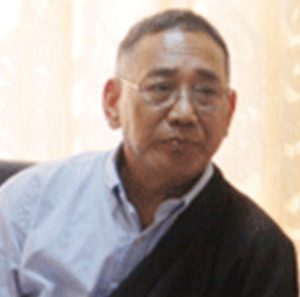 Mr. Ngodup Tsering was born on 1st July 1953 in Kyirong, Tibet. He is an alumnus of Punjab University, Chandigarh with a degree in Bachelor of Arts. He was also a former member of the Tibetan Parliament-in-Exile, formerly known as the Tibetan People’s Deputies from 1979-1982.
Mr. Ngodup Tsering was born on 1st July 1953 in Kyirong, Tibet. He is an alumnus of Punjab University, Chandigarh with a degree in Bachelor of Arts. He was also a former member of the Tibetan Parliament-in-Exile, formerly known as the Tibetan People’s Deputies from 1979-1982.
He joined the Central Tibetan Administration service in 1983, on the post of Deputy Secretary in the Department of Education. From 1991 to 1995, he served as the Director of the Tibetan Institute of Performing Arts (TIPA). In 1996, he was promoted to the rank of Secretary as the Secretary of the Department of Education. In 1999, he was transferred to the Department of Home of the Central Tibetan Administration as its secretary.
From 2001 to 2008, he served as the president and the director of various Tibetan Associations in the United States.
He was assigned as the Secretary of the Department of Education in 2012 and nominated as the Kalon of Education department by Sikyong Dr. Lobsang Sangay in September 2014. He was again nominated for Kalon by Sikyong Dr. Lobsang Sangay for the second term. Ngodup Tsering took charge as the Representative of North America from 1st December 2017.
14. Ven. Karma Gelek Yuthok (Tenure: 1/1/2018-3/4/2018)
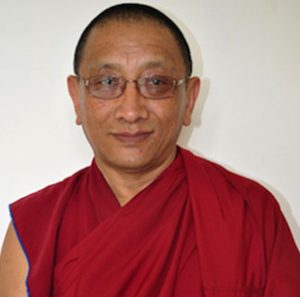 Ven. Karma Gelek Yuthok was born in Namru in northern Tibet in 1955 and arrived in India as a refugee in 1962. He was educated in the Central School for Tibetans, Mussoorie until 1973. Subsequently, he enrolled in the Institute of Buddhist Dialectics in Dharamsala and pursued intensive traditional studies of Tibetan Buddhist Philosophy for 13 years. During this period, he also successfully completed master’s degree in English from Punjab University, Chandigarh. He received his ordination as a monk from the His Holiness the 14th Dalai Lama in 1981.
Ven. Karma Gelek Yuthok was born in Namru in northern Tibet in 1955 and arrived in India as a refugee in 1962. He was educated in the Central School for Tibetans, Mussoorie until 1973. Subsequently, he enrolled in the Institute of Buddhist Dialectics in Dharamsala and pursued intensive traditional studies of Tibetan Buddhist Philosophy for 13 years. During this period, he also successfully completed master’s degree in English from Punjab University, Chandigarh. He received his ordination as a monk from the His Holiness the 14th Dalai Lama in 1981.
He joined the Central Tibetan Administration (CTA) in 1986. Since then he has held various positions, including Secretary of the Department of Religion and Culture. In 1994, he was appointed the Representative of the 14th Dalai Lama Tokyo Tibet Office, then the Secretary of the Education Department in 2018, and later of the Kashag secretariat from 2012. He was appointed as minister of Religion and Culture of the 15th Kashag led by President Dr. Lobsang Sangay in June 2016.
In lieu of the appointment of Ngodup Tsering as the Representative of His Holiness the Dalai Lama’s Office of Tibet, North America based in Washington DC, he also took the additional charge of the Kalon of Department of Education.
15. Dr. Pema Yangchen (Tenure: 4/4/2018-26/5/2021)
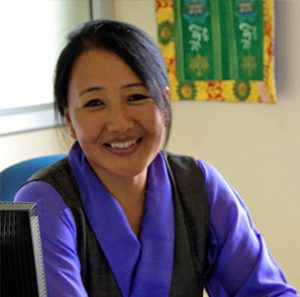 Dr. Pema Yangchen is the Kalön for Education in the Department of Education, CTA. She received her primary school education in Bhutan and completed her secondary education in India at Upper Tibetan Children’s Village School, Dharamsala. She completed her undergraduate degree (BA Honours) in English Language and Literature from Delhi University and Bachelor of Education (B.Ed. English) from University of Mysore. She then pursued her graduate studies in the US under a one-year Fulbright Scholarship followed by financial support from University of Northern Iowa, Cedar Falls, Iowa which enabled her to successfully earn her master’s degree (MA in TESOL) in 2003 and the doctorate in education (EdD in curriculum and Instruction) in 2009. In 2011, she was honoured with ‘Outstanding Doctoral Dissertation Award” by the Graduate College, University of Northern Iowa for her dissertation titled “Teacher Learning in a Tibetan School in Exile: A Community of Practice Perspective.”
Dr. Pema Yangchen is the Kalön for Education in the Department of Education, CTA. She received her primary school education in Bhutan and completed her secondary education in India at Upper Tibetan Children’s Village School, Dharamsala. She completed her undergraduate degree (BA Honours) in English Language and Literature from Delhi University and Bachelor of Education (B.Ed. English) from University of Mysore. She then pursued her graduate studies in the US under a one-year Fulbright Scholarship followed by financial support from University of Northern Iowa, Cedar Falls, Iowa which enabled her to successfully earn her master’s degree (MA in TESOL) in 2003 and the doctorate in education (EdD in curriculum and Instruction) in 2009. In 2011, she was honoured with ‘Outstanding Doctoral Dissertation Award” by the Graduate College, University of Northern Iowa for her dissertation titled “Teacher Learning in a Tibetan School in Exile: A Community of Practice Perspective.”
Dr. Yangchen spent 8 years teaching English in TCV School, Suja prior to her graduate education and about 9 years at the Dalai Lama Institute for Higher Education (DLIHE) from 2009 to 2017. At DLIHE, in addition to her teaching responsibilities, she also served as the head of department and later as the Vice-Principal. During her last year at DLIHE, serving as a volunteer, she was able to develop a Professional Development Program with the theme “Teaching and Learning” which was first conducted at DLIHE and later in three TCV schools. She enjoys teaching and her interest lies in promoting professional development of teachers. She strongly advocates “teaching as a learning profession” and continues to encourage teachers to establish a community of teachers from all disciplines to provide a platform for teachers to engage in intra and cross-school collaboration, build confidence in themselves as autonomous professionals, and share and discuss reflections on teaching and learning with others, thus enhancing professional growth. Dr. Yangchen served as the Kalön of Department of Education from 4th April 2018 till 26th May 2021.
* In case of any discrepancy between this English translation and its Tibetan original, the later should be considered authoritative and final for all purposes.
16. Changra Tharlam Dolma (Tenure: 10/11/2021-)
 Former Parliamentarian Changra Tharlam Dolma is the Kalön for the Department of Education, CTA. She completed her schooling at Gangtok, Bylakuppe, and Nirmala Convent school in Mysore. She received her Bachelor of Arts degree from Teresian College and Master of Arts (Economics) from Mysore University in 1975. She completed her B.Ed degree from St. Joseph’s in Mysore.
Former Parliamentarian Changra Tharlam Dolma is the Kalön for the Department of Education, CTA. She completed her schooling at Gangtok, Bylakuppe, and Nirmala Convent school in Mysore. She received her Bachelor of Arts degree from Teresian College and Master of Arts (Economics) from Mysore University in 1975. She completed her B.Ed degree from St. Joseph’s in Mysore.
Tharlam Dolma has served for over 37 years in Tibetan schools including 14 years as a teacher in both primary and senior secondary schools. From 1991 – 94, she served as the principal of CST Dalhousie, and from 1994 – 2003, and again from 2005 – 2009, she served as the Principal of CST Bylakuppe. From 2009 – 2010, she served as the Principal of CVP school in Dekyi Larso, Bylakuppe. From 2003 – 2005, and again from 2010 – 2013, she served as the principal of CST Mundgod. She retired from active service in 2013.
Tharlam Dolma also served as the Core committee member of the regional Tibetan Women’s Association of Bylakuppe and as a board member of Dalhousie Public School and Dalhousie Hill Top School. In 2013, she received the prestigious National Award for Teachers from President Abdul Kalam.
Since 2011, she is a member of the Department of Education’s Education Council and Advisory Committee and is also a governing council member of the Dalai Lama institute based in Bengaluru. Changra Tharlam Dolma served as the Kalön of Department of Education from 10th November 2021.
